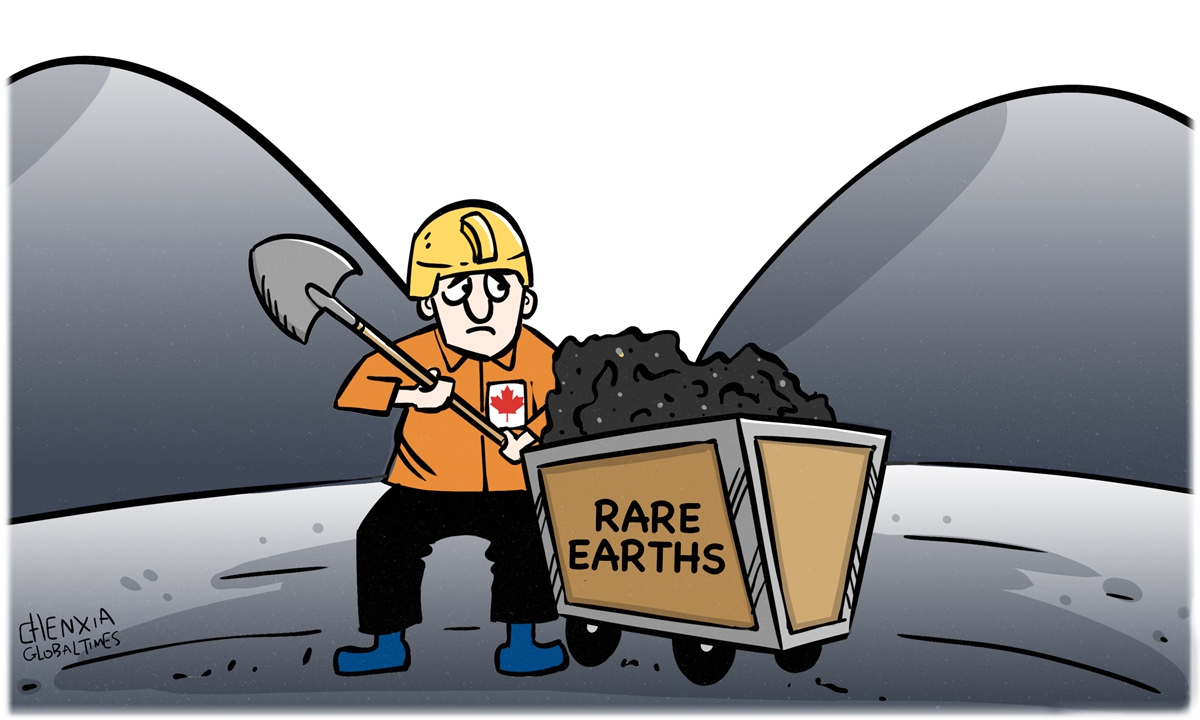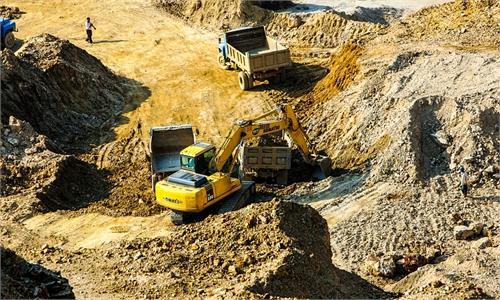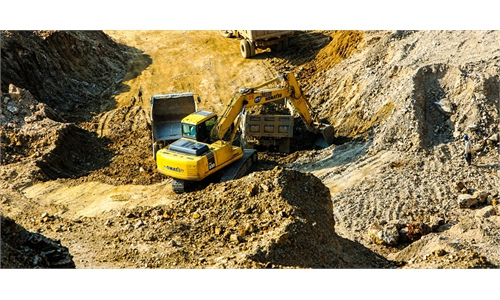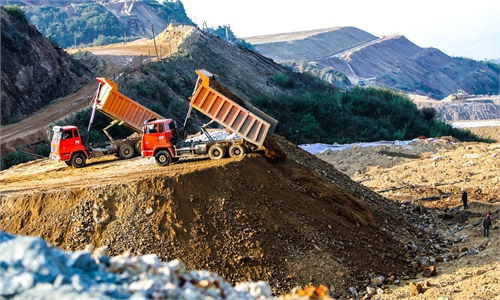
Illustration: Chen Xia/Global Times
Canada-based Neo Performance Materials has agreed to buy a rare earth mining project in Greenland, the Chinese-language website of the Voice of America (VOA), the US government's propaganda arm, reported on Wednesday, claiming that the project is "paving the way for reducing dependence on China's rare-earth supplies."CEO of the Canadian firm Constantine Karayannopoulos was quoted as saying that Neo aims to have the mine running in two to three years, and called it "business, not geopolitics." However, the VOA pointed out that the US and Western countries view their "dependence" on China's rare earths as a "security risk" and have sought to diversify their import sources. EU officials "encouraged the project because it could help Europe become more self-sufficient in rare earths," the report said.
Rare earth minerals are crucial raw materials that are widely used in producing electronic components for high-tech products ranging from electric vehicles and smartphones to even advanced weaponry.
From a global development prospective, it would not necessarily be a bad thing if benign competition with China inspires global enterprises to upgrade their technology and improve production capacity. However, the US and some of its allies, in their pernicious and selfish attempt to contain China's rise, has brought toxic geopolitics to the crucial rare-earth industry as well as other economic and trade fields.
The US and its allies try to exclude China from the global industrial chain and reconstruct their rare-earth production capability. With the resurgence of Cold War mentality and narrow-minded geopolitical thinking, any small advance by Western enterprises can easily be described by foreign media outlets as a huge victory in "reducing dependence on China's rare-earth supplies." Fewer people are concerned about technological progress and normal business cooperation, and the focus has been shifted onto geopolitical tensions and how to "defeat China."
China currently is the only country in the world with a complete industrial chain for producing rare earths. The country provides more than 85 percent of the world's rare earths and is home to about two-thirds of the global supply of scarce metals and minerals like antimony and barite, according to media reports.
The reason why China controls most of the global market for processing and refining rare earths is because the country has low-cost and low-pollution rare-earth processing capacity after years of efforts in forming a complete industrial chain and accumulating experience in reducing pollution. The complete industrial chain and processing technology help China build core competitive advantages in the rare-earth sector. One or two rare-earth mining and processing projects outside China will not affect the country's position in the rare-earth supply chain.
Investment in rare-earth development is a normal business operation. There is no need to read too much into Western companies' normal investment plan to expand their projects. It's for precisely the US-led geopolitical confrontation and Cold War mentality that the world recognizes the special value of rare earths as a strategic resource. Some economies have begun to raise the threshold for foreign enterprises to explore and export rare earths, which in turn creates obstacles for global companies, including Western multinationals, to carry out normal business activities.
The geopolitical competition will make it more difficult for the US and other Western countries to build their own competitiveness in the rare-earth industry and to "reduce their dependence on China's rare-earth supplies."
The author is a reporter with the Global Times. bizopinion@globaltimes.com.cn



